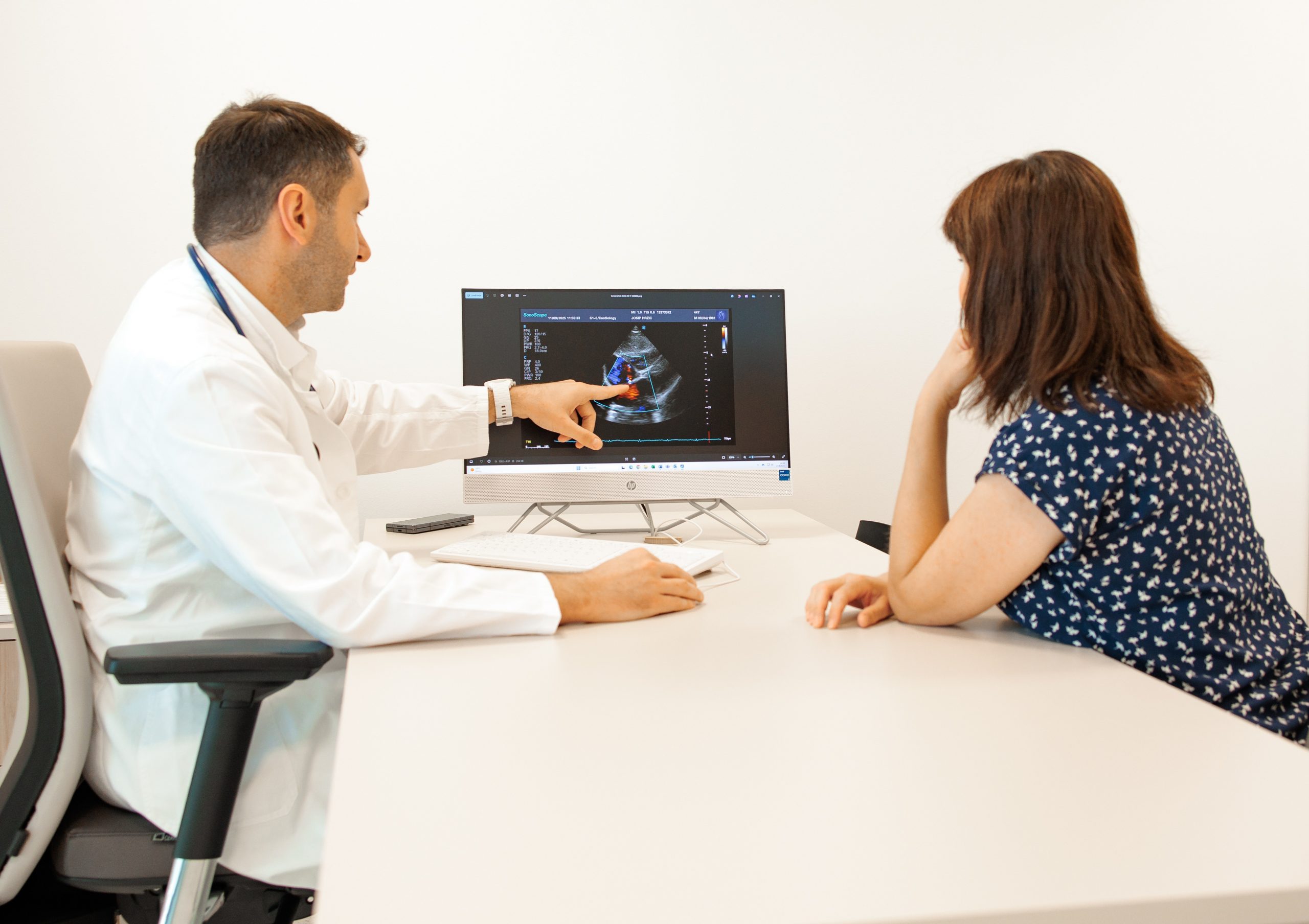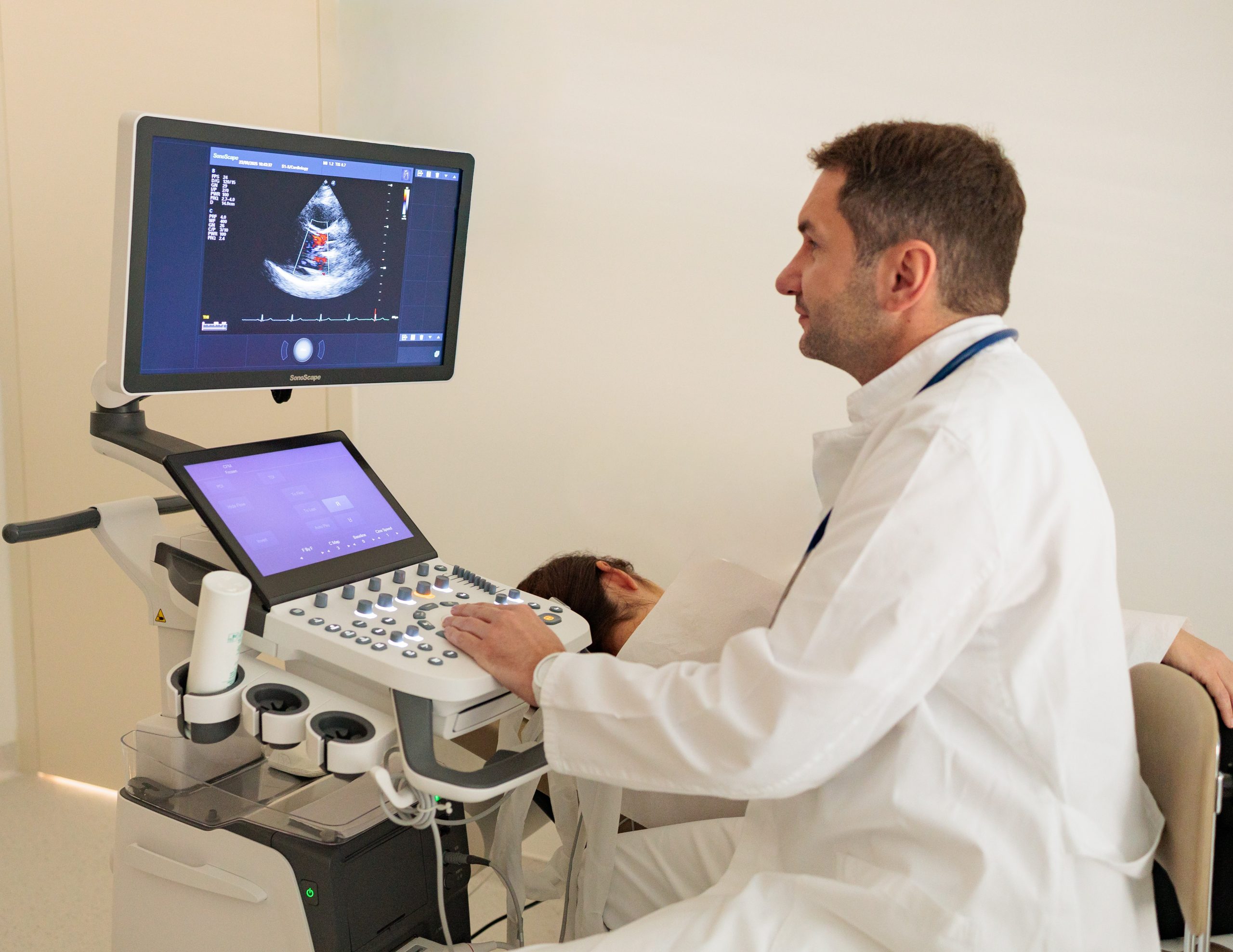Every year on September 29 we mark World Heart Day. From 2024 to 2026, the campaign theme is “Use Heart for Action” The campaign encourages individuals to take care of their hearts and empowers them to advocate for government leaders to prioritize cardiovascular health. The best thing you can do for yourself is to prevent or delay the onset of certain diseases, and when illness does appear, to react in time.
IMC Priora brings together a team of specialists who can help you maintain your heart health and overall well-being.

Which symptoms require a cardiologist consultation?
A cardiology consultation is necessary in cases involving chest pain, irregular heartbeat, ankle swelling, fatigue, shortness of breath, dizziness, or loss of consciousness.
In addition, you should see a cardiologist if you have: high blood pressure, a history of heart attack (myocardial infarction), previous heart surgery, high blood lipids, and similar conditions.

Which diagnostic tools does the IMC Priora team use?
Tests available at IMC Priora include blood pressure monitoring, Holter monitoring, exercise stress testing (ergometry), ECG, and echocardiography (heart ultrasound with color Doppler).
- Blood pressure Holter – the most accurate method of measuring blood pressure
- ECG – prolonged monitoring to detect irregular heartbeat
- ECG Holter – prolonged monitoring to detect irregular heartbeat
- Ergometry – detecting narrowing and diseases of the heart’s blood vessels
- Heart ultrasound – detecting valve abnormalities, enlarged heart, irregular function
All of these tests are evaluated by a cardiologist (specialist in internal medicine). In addition, laboratory tests may be recommended, such as a complete blood count, thyroid hormone levels, blood lipids (lipid profile), liver enzymes, and NT-proBNP, among others. These laboratory tests can also be done within the IMC Priora laboratory, which speeds up diagnosis and helps identify the cause of the problem.

How to prevent heart disease?
The best ways to prevent heart disease are a healthy diet, daily physical activity, maintaining a normal body weight, avoiding smoking, and limiting alcohol consumption.
It is also essential to treat and monitor other conditions that can contribute to heart and blood vessel disease, such as diabetes, high blood pressure, obesity, joint pain, thyroid disease, and others.
Monitoring and controlling these chronic diseases slows down the development of cardiovascular disease. How can IMC Priora help you with this? IMC Priora brings together a team of doctors who can address all of these conditions together and help protect your heart.
Internal medicine specialists can provide guidance on a healthy diet, including an analysis and adjustment of your current eating habits.
In addition to dietary programs, body weight can be reduced with medication or surgical procedures.
Obesity can be treated surgically or non-surgically (medication, diet, physical activity).
Which surgical options are available for obesity?
Liposuction and body contouring are primary surgical procedures associated with obesity.
How can medication help with weight loss?
Today, new medications are available that enable weight loss through simple injections that can be administered at home.

What are the risks of excess weight?
People who are overweight have a higher risk of diabetes, vascular disease (atherosclerosis), high blood pressure, and joint pain.
Every kilogram less makes it easier to return to physical activity.
Physical activity is a crucial factor in protecting your heart and blood vessels. To help your joints function correctly, an orthopedic consultation can help treat painful joints in the hips, knees, and elsewhere. Hyaluronic acid injections or hip/knee replacement surgery can help you return to an active lifestyle and protect your health.
Additionally, a pulmonologist can diagnose breathing difficulties, especially in long-term smokers, helping you breathe fully and stay physically active.
World Heart Day reminds us of the importance of preventing heart disease. Learn which symptoms should not be ignored and which tests we perform at IMC Priora.